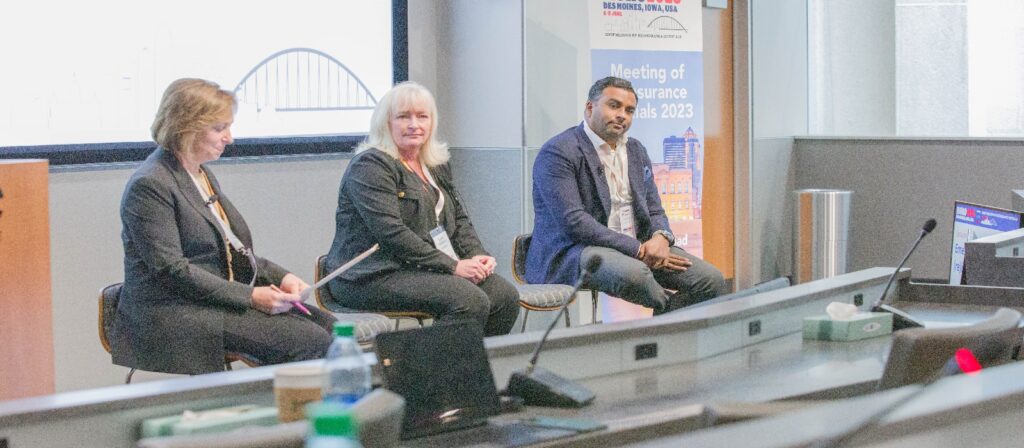In recent years, several emerging trends have garnered significant attention and raised important concerns. This session explored five such topics: electric vehicles (EVs), human trafficking, poly- and perfluoroalkyl substances (PFAS), misinformation, and supply chain disruptions. By examining the current state and implications of these issues, we can better understand their impact on various sectors and the need for proactive measures.
Electric vehicles (EVs) and battery hazards:
There has been rising consumer demand for EVs over the past decade which has led to a significant increase in their adoption. However, EVs come with unique challenges, particularly concerning battery hazards. Lithium-ion batteries, commonly used in EVs, require high energy density, efficient retention and discharge capabilities. While EVs offer environmental benefits and cost savings, they present safety risks such as thermal runaway and stranded energy. These risks can lead to challenging fire incidents, especially for fire departments which are, as yet, untrained in handling EV-related fires. Moreover, the disposal and replacement of EV batteries pose environmental concerns and logistical difficulties.
Human trafficking and insurance implications:
The legal landscape surrounding abuse and molestation exclusions in insurance policies is evolving, with increasing scrutiny on policy language in relation to human trafficking. The Trafficking Victims Protection Reauthorisation Act offers protection to trafficking victims, leading to a surge in federal civil trafficking cases in the USA. Notably, these lawsuits target not only active perpetrators but also businesses that may unknowingly facilitate trafficking activities. Insurance coverage litigation related to human trafficking has challenged traditional exclusions, highlighting the need for clear policy language and comprehensive risk management strategies.
Per- and polyfluoroalkyl substances (PFAS) contamination:
Per- and polyfluoroalkyl substances (PFAS) comprise a large class of synthetic chemicals found in numerous consumer products and industrial applications. PFAS are persistent and bioaccumulative (the increase of contaminant concentrations in aquatic organisms following uptake from the ambient environmental medium), posing significant health and environmental risks. Contamination can occur through various means, including drinking water, food consumption, and use of consumer products. The agricultural sector, in particular, faces litigation due to PFAS contamination, impacting farmers and food producers. Additionally, military sites and airports, where PFAS-containing firefighting foam is used, are areas of concern.
Misinformation and its consequences:
Misinformation has become a pressing issue in the digital age, with significant consequences for individuals, communities, and even national security. The rapid spread of false or misleading information, fuelled by social media platforms and other online channels, has led to public confusion, distrust, and harm. Misinformation can affect public health, political discourse, and social cohesion. Addressing this challenge requires collective efforts from technology companies, policymakers, and society as a whole to promote media literacy, fact-checking, and responsible information sharing.
Supply chain disruptions and resilience:
Global supply chains face numerous challenges, including natural disasters, geopolitical tensions, and the COVID-19 pandemic. Disruptions in supply chains can have severe economic and social consequences, affecting industries and individuals worldwide. Building resilience in supply chains requires diversification, agility, and proactive risk management strategies. Embracing digital technologies, fostering collaboration, and ensuring transparency can help mitigate the impact of supply chain disruptions and enhance overall resilience.
As our society continues to evolve, it is crucial to closely monitor and address emerging trends that shape various sectors. Electric vehicles, human trafficking, PFAS contamination, misinformation, and supply chain challenges present complex issues that demand proactive solutions and collaboration among stakeholders. By understanding the risks and implications associated with these topics, we can work towards a more sustainable, secure, and equitable future.





